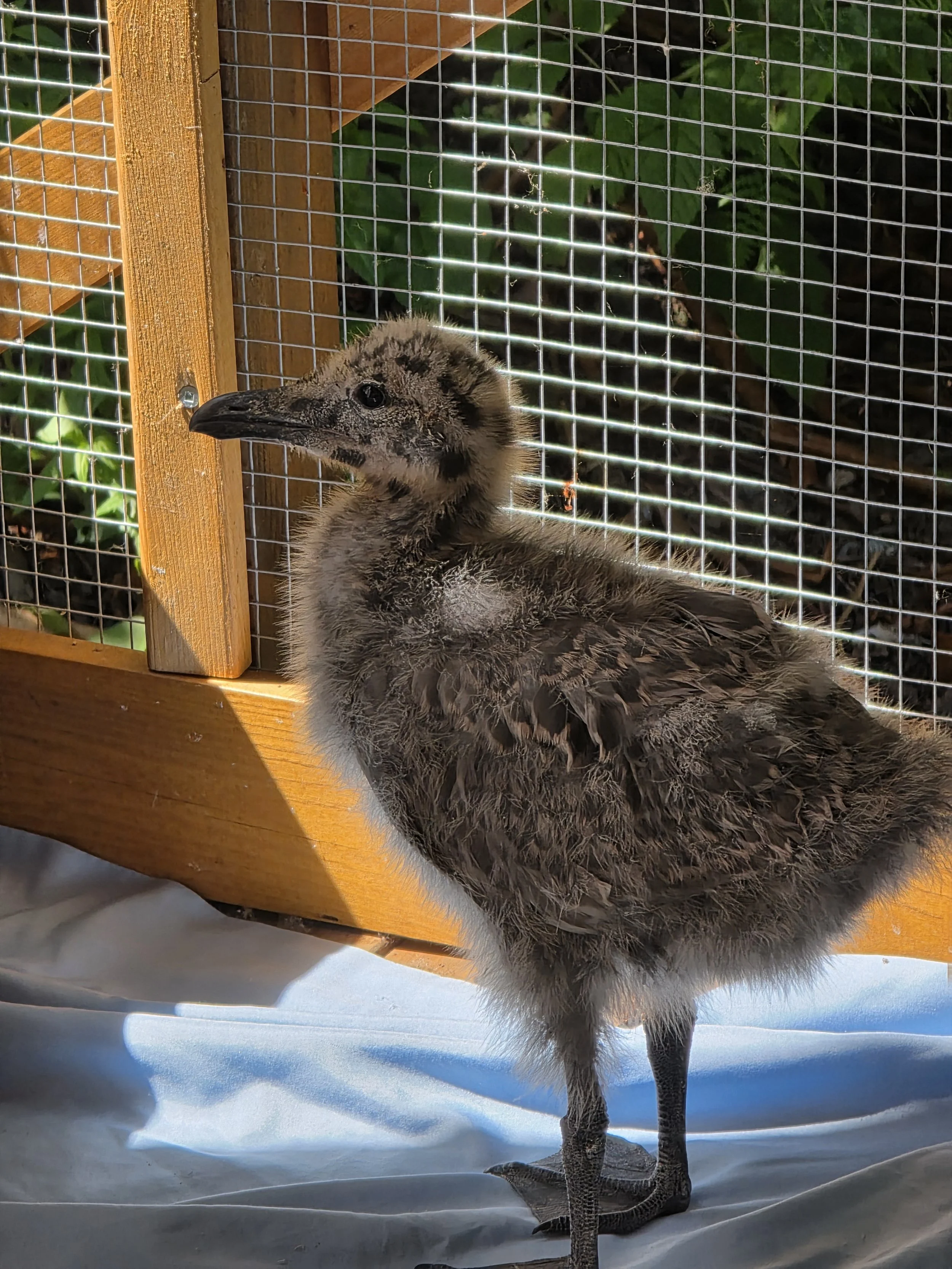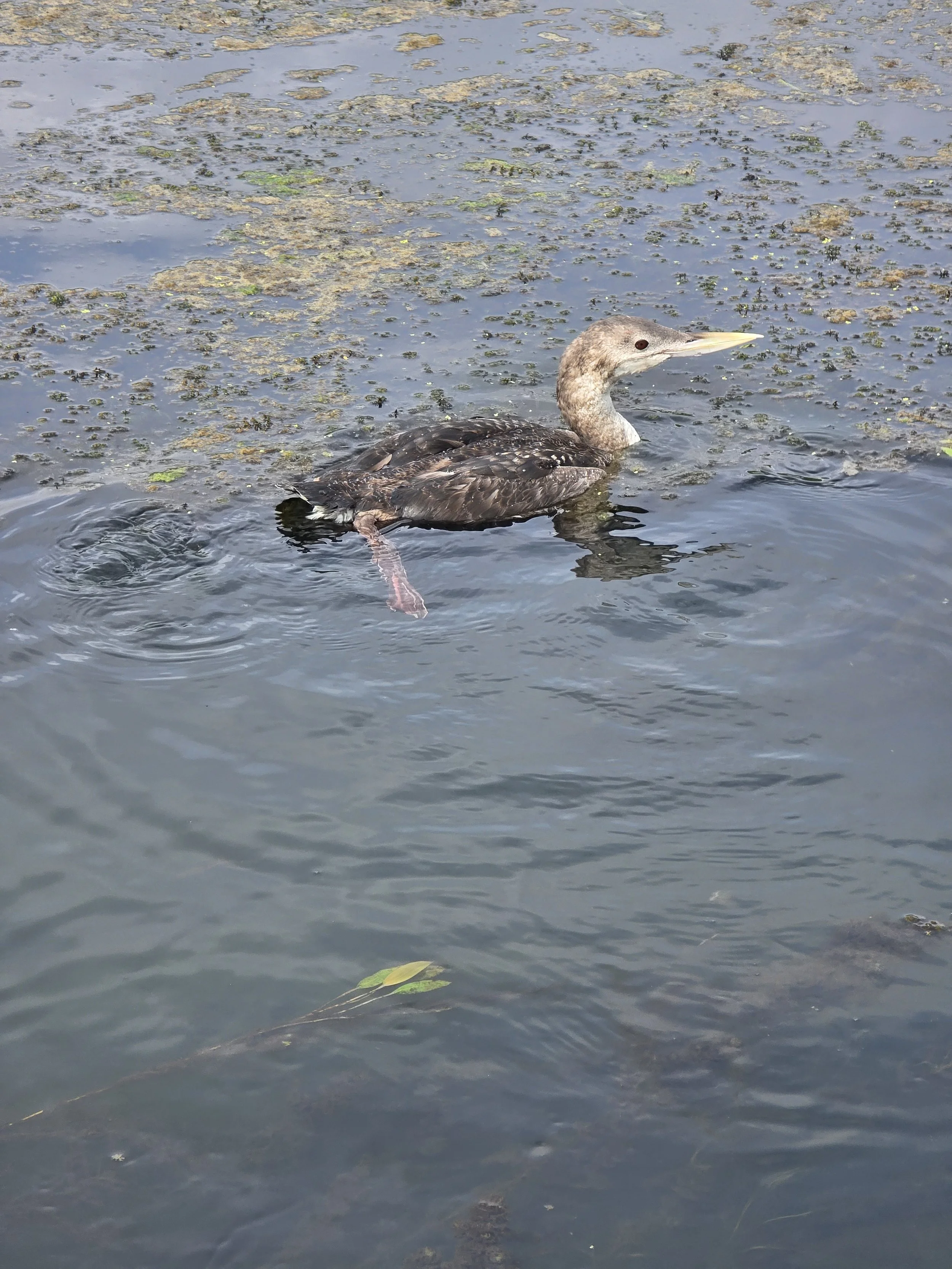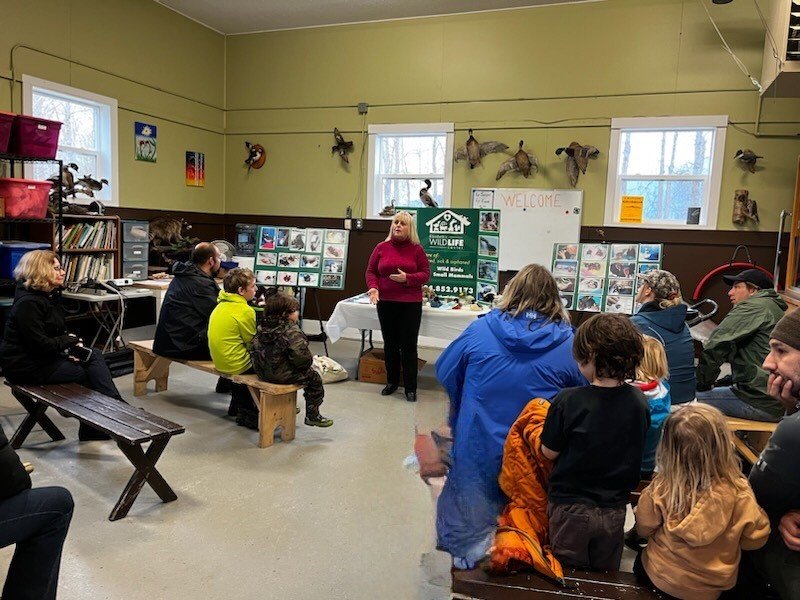
Rescue, Rehabilitate, Release.
Caring for injured, orphaned and sick wild birds and small mammals since 1986.
Elizabeth's Wildlife Center
is open 7 days a week 365 days per year and accepts injured, sick, and abandoned wildlife.
If you have found an injured, sick or orphaned animal, please call us at (604) 852-9173 to discuss the situation and we can advise next steps.
Avian Influenza: What You Need to Know
Avian influenza virus (AIV) is contagious and can affect domestic and wild birds. Many AIVs occur naturally in wild birds and circulate in migratory populations without causing widespread disease. The current strain is causing widespread mortality in wild birds and occasionally in wild and domestic mammals. There have been no human cases of avian influenza resulting from exposure to wild birds in North America. However, anyone in close contact with infected birds and their environments may be at increased risk of infection. Refer to the Public Health Agency of Canada website for handling guidelines.
Common symptoms of avian flu include:
lack of energy or movement
nervousness, tremors, or lack of coordination
swelling around the head, neck, and eyes
coughing, gasping for air, or sneezing
diarrhea
sudden death
For the most current information visit:
You can also find information here:
What to do when you encounter a sick bird
Please do not interact or handle the bird and Contact the Interagency Wild Bird Mortality Line at 1-866-431-BIRD (2473). They will give you guidance depending on the situation at hand.
What about your pets?
As part of general best practices, it is recommended to keep your cat indoors and your dog on a leash to prevent contact with sick or dead wild birds as well as wild bird feces. Do not allow pets or hunting dogs to scavenge carcasses and do not feed your pets raw meat from wild birds.

Get involved
Volunteer at our facility.
Elizabeths Wildlife Center School Education Program
Enjoy this one-hour interactive hands-on presentation and learn about the different ways our wildlife center helps Rehabilitate injured, sick, and orphaned mammals and birds. As well as learn what to do should you find a injured wild animal or bird, ways you can more harmoniously coexist with the wonderful wildlife in nature, and how to be a wildlife ambassador within our beautiful province.
Elizabeth’s Wildlife Center has completed the construction process for the new center. Thank you to everyone for donating and making this project a reality!









